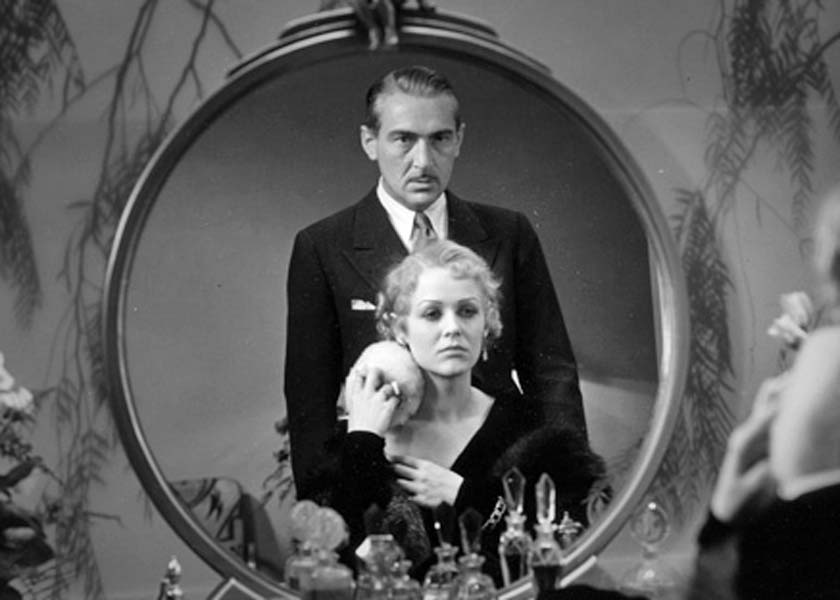Synopsis
Walter Bernsdorf (Lukas) shoots his wife (Stuart) as she is undressing in her lover's (Walter Pidgeon) bedroom. Distraught, Walter tells his attorney, Paul Held (Morgan), that he had not suspected his wife until the afternoon he killed her. That day as she was sitting before her mirror carefully making up, he came from behind and kissed her. Her response was anger. He immediately suspected that she had a lover for whom she was beautifying herself. He took his gun and followed her to her lover's house where he shot her. Leaving the jail, Paul goes home to his own beautiful and seemingly faithful wife, Maria (Carroll). In their bedroom he rests on a lounge as she carefully makes up before her mirror. He notes the elaborateness of her preparations. He realizes the similarity to the actions of his client's wife. He rises, and coming from behind, kisses her. Her response is anger. Suddenly, he realizes that Maria is cheating on him. He follows her and observes his wife embracing her lover (Donald Cook). Distressed, Paul contemplates murdering Maria.
In court Paul makes an impassioned plea for his client saying that he suffered from crazed jealousy as he watched his wife undress for her lover. Maria, in court to hear her husband's plea for Walter, realizes that Paul is pleading his own defense in anticipation of killing her. She becomes hysterical and has to leave the court. Walter is acquitted of murder. He tells Paul that even though Maria is unfaithful, Paul would regret harming her. Later, at home, Paul realizes that although he is devastated by her adultery, he cannot kill his beloved Maria. After her hysteria in the court, Maria has considered her actions. She realizes that she loves her husband and deeply regrets her unfaithfulness. She comes home to plead for forgiveness. The couple is reconciled.
Discussion
This fine Pre-Code film is a story of faithlessness, remorse and reconciliation. Walter's inconsolable sorrow teaches Paul that murdering his wife will not resolve his anger and grief. Maria has learned that she loves her husband and deeply regrets betraying him. The couple is reconciled.
Frank Morgan, though best known for his bumbling comic characters, such as the 'wizard' in The Wizard of Oz (1939), often played serious and troubled individuals, notably in Lubitsch's The Shop Around the Corner (1940). In his early 1930s roles, his troubles often involved a woman, such as in Hallelujah I'm a Bum (1933). Morgan nicely conveys lawyer Paul Held's anger and grief at his betrayal.
Nancy Carroll began her career as the star of her films. From 1928-35 she starred in many notable films, such as Laughter (1930). Her status declined to supporting roles in the mid-1930s, and her last film role was in 1938. She re-emerged in the 1950s in several appearances on television.
Other films produced during the brief Pre-Code Hollywood period from 1930-34 (before enforcement of the the Motion Picture Production Code restricting profanity, violence, sexuality and cynical content from films) include The Bachelor Father, Blondie of the Follies, Employee's Entrance, Hat Check Girl, A House Divided, Ladies They Talk About, Laughter in Hell, The Maltese Falcon, Safe in Hell, She Had to Say Yes and Ten Cents a Dance.

